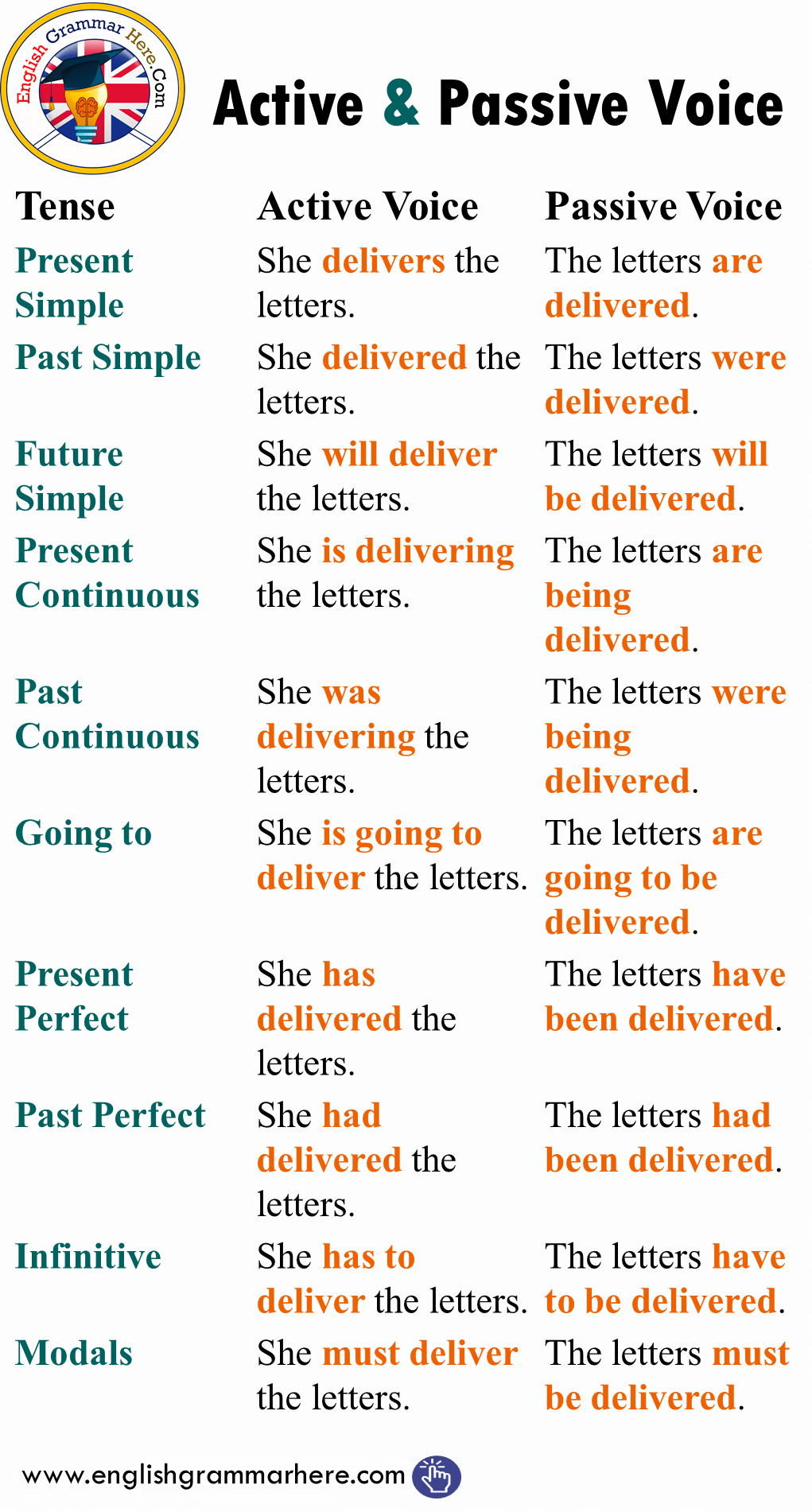In English grammar, active and passive voice are two different ways of expressing actions. In active voice, the subject of the sentence performs the action, while in passive voice, the subject receives the action. Understanding the difference between the two can help improve the clarity and effectiveness of your writing.
Using active voice can make your writing more direct and engaging, while passive voice is often used when the focus is on the action or when the subject is unknown or unimportant. Let’s explore some examples of active and passive voice to better understand how they are used.
Examples of Active and Passive Voice
Active Voice: The chef prepared the delicious meal.
Passive Voice: The delicious meal was prepared by the chef.
In the active voice example, the subject “the chef” is performing the action of preparing the meal. In the passive voice example, the subject “the delicious meal” is receiving the action of being prepared by the chef.
Active Voice: The team won the championship.
Passive Voice: The championship was won by the team.
Here, the focus in the active voice sentence is on the subject “the team” winning the championship. In the passive voice sentence, the emphasis is on the championship being won by the team.
Active Voice: The teacher assigned the homework to the students.
Passive Voice: The homework was assigned to the students by the teacher.
Active voice is often preferred in academic and professional writing because it is more direct and concise. Passive voice can be useful in certain situations, such as when the doer of the action is unknown or when the focus is on the action itself rather than the subject performing it.
By understanding when to use active and passive voice and practicing with examples, you can improve the clarity and effectiveness of your writing. Experiment with both forms to see which works best for different contexts and purposes.
Remember that using active voice can help make your writing more engaging and dynamic, while passive voice can be appropriate in specific situations. By mastering both forms, you can become a more versatile and skilled writer.
